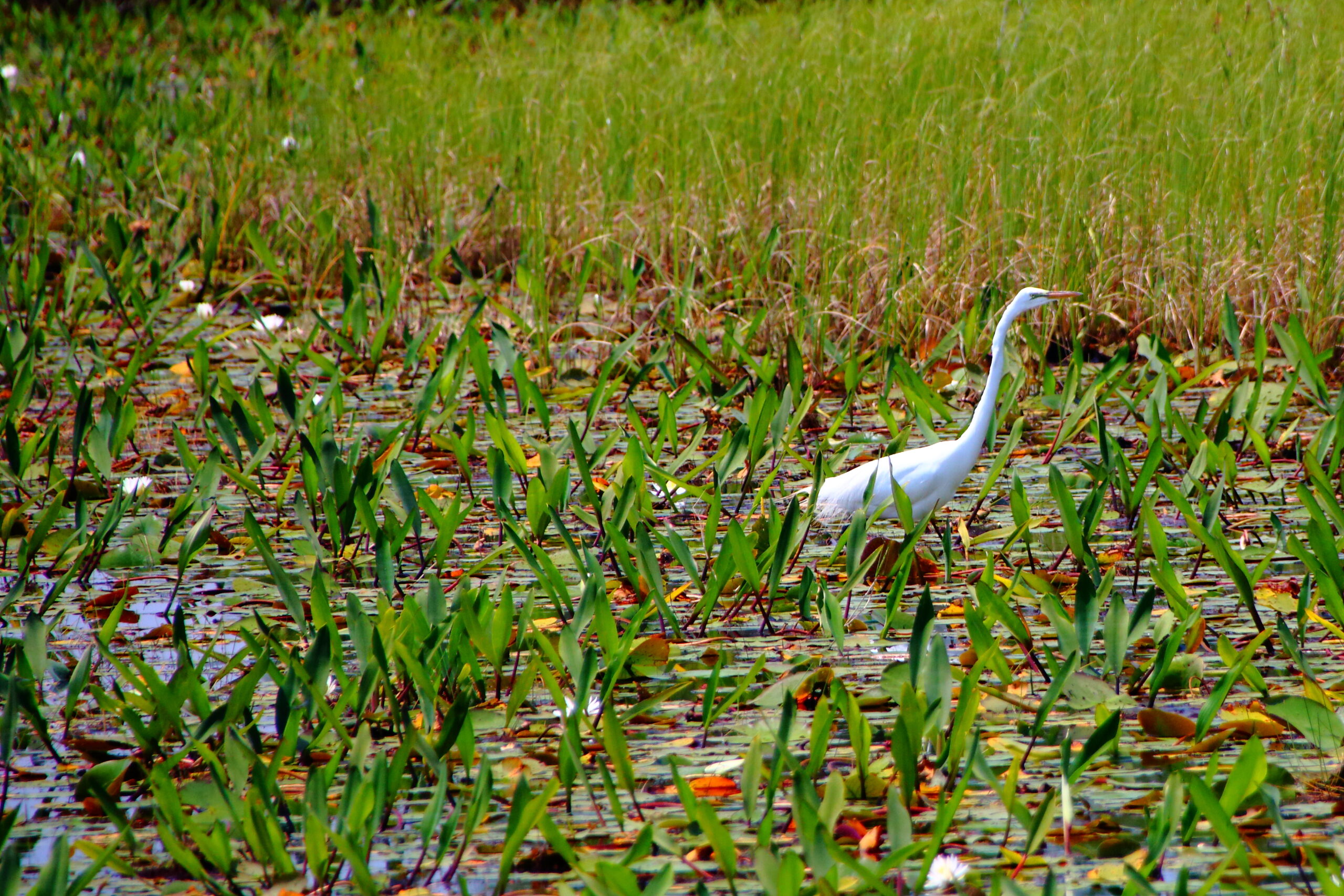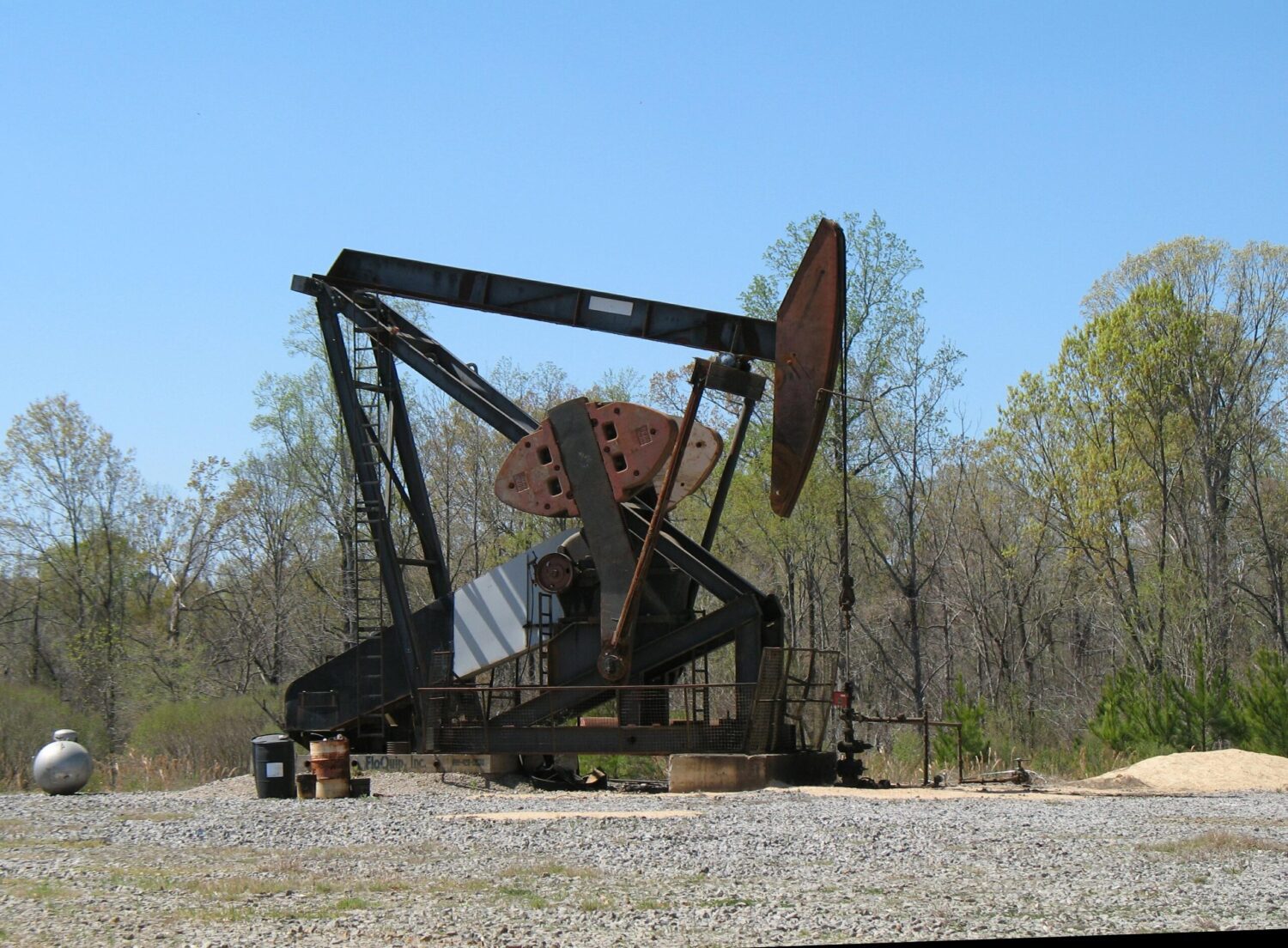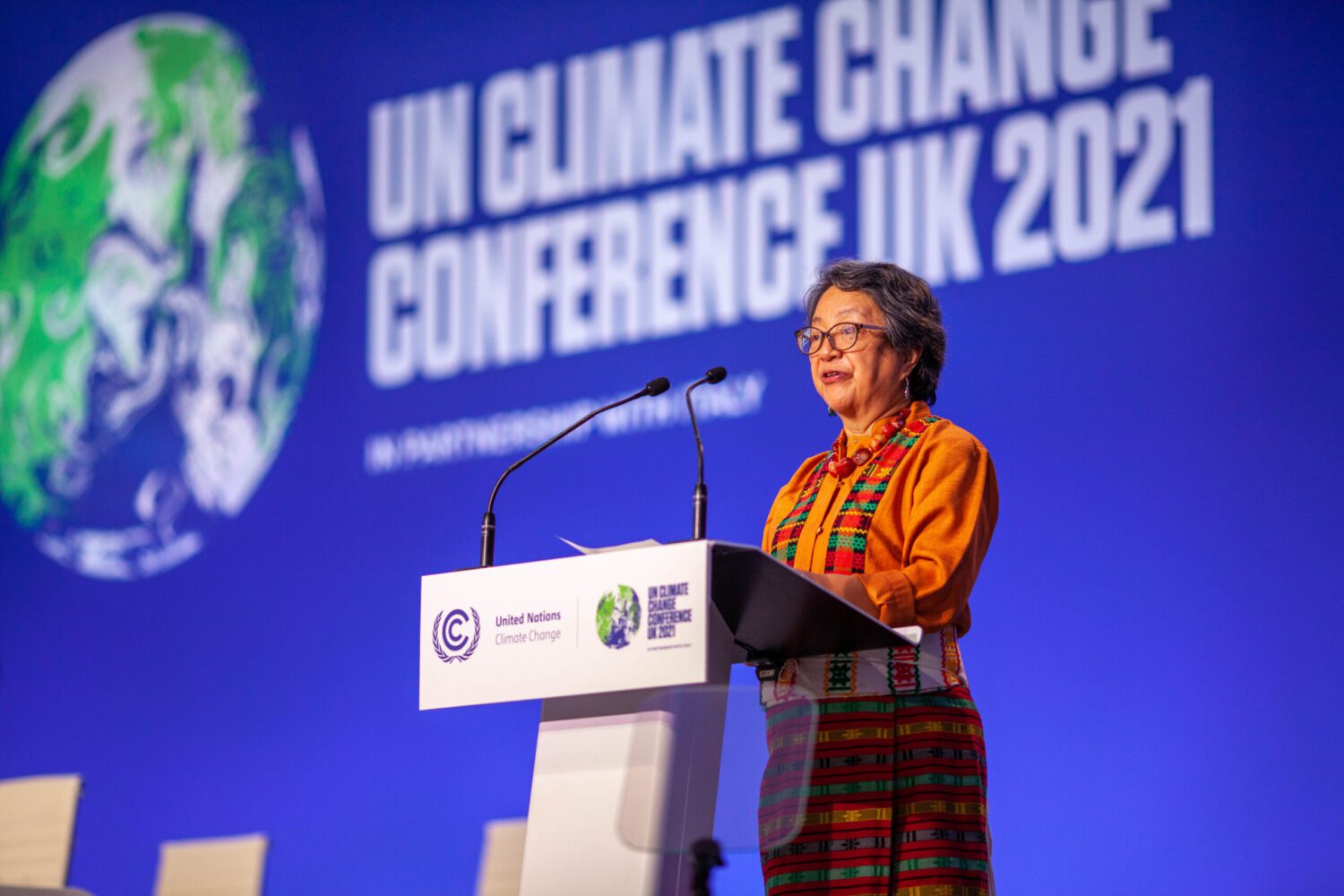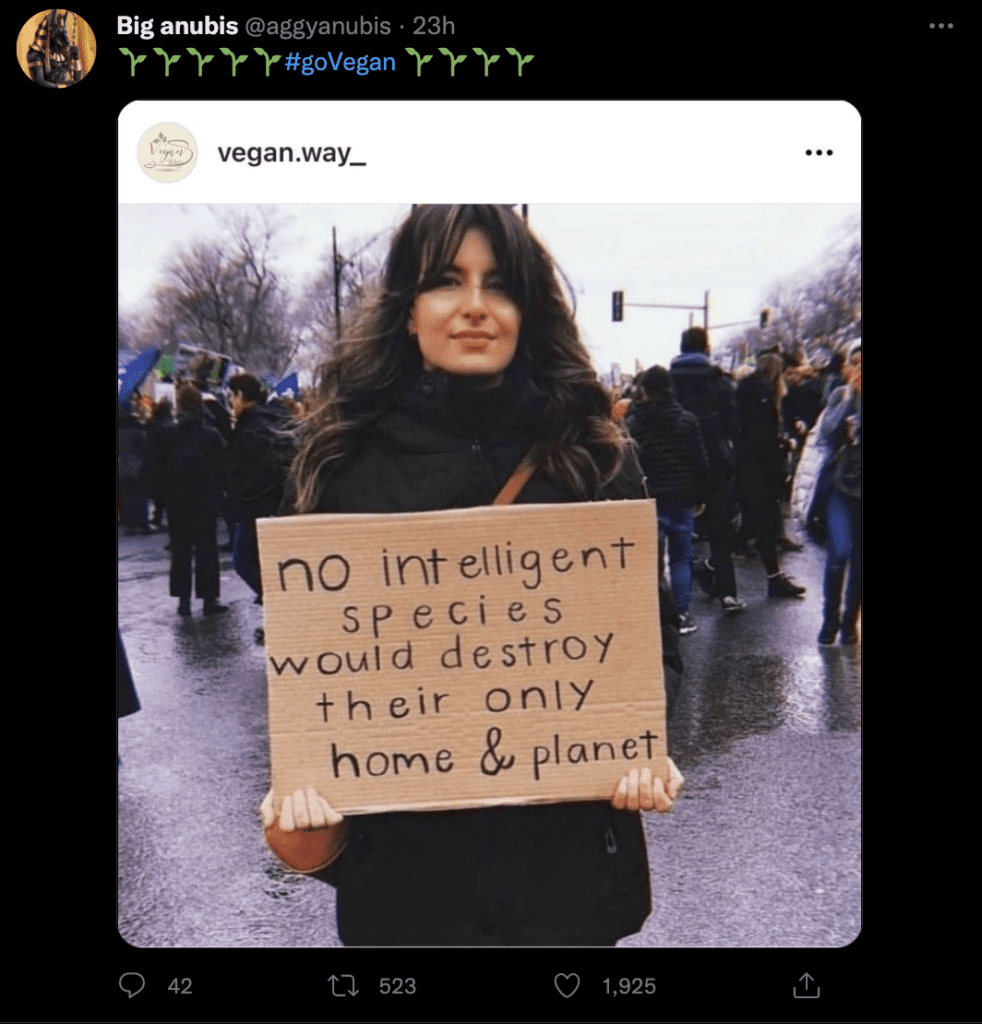


No version of “waters of the U.S.” (WOTUS), part of the Clean Water Act, adequately protects the nation’s natural areas.
By Sam Davis, Independent Media Institute
5 min read
The recent decision by the Supreme Court to look into “limiting the scope” of “waters of the U.S.” (WOTUS), which is an important part of the Clean Water Act of 1972, is likely to further threaten America’s biodiverse ecosystems. The Clean Water Act refers to WOTUS but does not clearly define it, leaving its definition up for interpretation by the government and the Environmental Protection Agency (EPA), as well as the Supreme Court. The lack of clarity over this federal law has virtually stripped U.S. wetlands from any protection, which could have far-reaching environmental impacts as we try to mitigate the additional challenges posed by climate change.
This recent decision by the court has turned WOTUS into a battleground. The rule has been highly controversial since 2015 because the EPA under then-President Barack Obama decided to tweak the definition so it covered more types of bodies of water and afforded protection to them. The Trump administration, meanwhile, swung starkly in the other direction, attempting to remove protections for wetlands that had been historically included under rulemaking in the 1980s and 1990s.
Unfortunately, even though many people and environmental organizations—including my own, Dogwood Alliance—have taken action to protect wetlands, the WOTUS rule does little to protect our forests or forested wetlands. When the Clean Water Act was written, the authors carved out a big exemption for logging, road construction and agricultural activities—such as pesticide application, constructing ponds and planting or harvesting with heavy machinery.
This means that if there’s a wetland downstream of regular farming activities, the wetland may get zero protection under the law. Also, in an instance where there’s a wetland between a paved road and a forest, and the owner wants to trade trees for cash, there are few to no legal obstacles preventing the sale.
Unfortunately, defending or even updating WOTUS will not stop the proposed mining activities in the forested wetland in Georgia to cause massive destruction there, which will happen if Twin Pines Minerals is allowed to mine near the Okefenokee Trail Ridge. Nor will WOTUS automatically stop your local developer from draining a wetland—the rule will just make them jump through some hoops first before the permission is eventually granted.
WOTUS Doesn’t Prevent Wetland Loss
If you’re planning to change your land in a way that impacts the bodies of water nearby, you must get a permit. Permits allow a project to proceed, but often require some sort of mitigation. For example, pollution controls might be installed, or new wetlands might be built.
Some scientists have examined whether or not permitting eventually helps maintain wetlands, and have found troubling things. One study found that there was a net loss of wetlands despite permits mandating the creation of compensatory wetlands; they also found that the types of wetlands being created were not the same type as those that were being lost. Similar patterns have been found across the country.
Logging Has Significant Impacts on Water Quality
The authors of the Clean Water Act exempted two major types of activities that have substantial impacts on natural water quality: logging and agriculture. There are decades of peer-reviewed research about the impacts of logging on water quality. So while the government authorities and those drafting the act must have been aware of the negative impacts of these activities on water quality, they just didn’t seem to care.
Logging destroys soil: It’s exposed to full sunlight, it’s compressed and it’s more likely to break apart under pressure. Dry, compressed soil doesn’t clean or absorb water the way that it should. This soil can cause sedimentation in nearby waterways. Sedimentation can contaminate drinking water and provide opportunities for harmful algal blooms to flourish.
There Are No Substantive Rules on Logging
The logging industry’s solution to the impacts of forestry activities on water quality is called “best management practices.” These are voluntary, state-by-state guidelines on how to log without affecting water quality. These rules are nothing more than a piecemeal approach to ensuring that logging activities can be carried out uninterrupted.
There are no substantive rules relating to logging in the U.S. South. If you own land, you can clear-cut—no permit required. Even on state and federal lands, it is easy to clear-cut to produce revenue for the landholding organization, especially if it’s justified with tenuous arguments of wildfire prevention.
Our Forests Are a Free-for-All
The United States is the world’s largest consumer and producer of wood products. These wood products are extracted mostly from the U.S. South. Some, like building materials, can be considered necessary. Others, like single-use cups and dirty wood pellets being passed off as “green” energy, are not.
The South has been turned from beautiful native forests into rows upon rows of fast-growing pine plantations. In North Carolina alone, more than 200,000 acres of forests are logged every year, the equivalent of more than 400 football fields a day of forest destruction. Logging is the number one cause of carbon emissions from U.S. forests—five times more than carbon emissions from fires, drought and insect damage combined.
WOTUS Is Important, but We Need to Do More
Logging has huge impacts on water quality, and the rate and scale of logging in the United States create a staggeringly wide scope of the problem; and yet very little has been done to address it. The fight for WOTUS, while important, seems like a drop in the bucket.
There is a need for commonsense rules for water quality in the United States. It affects rural communities across the South who rely on wells and septic systems for home water management. It affects all Americans’ ability to enjoy the natural areas around them.
Restoring basic WOTUS protections is a start. But to completely ignore the exemptions that the Clean Water Act provides to logging and agriculture—two of the largest polluting industries—is to do a disservice to future generations.
Environmental organizations like mine, the Dogwood Alliance, have worked to spread public awareness and get people to submit public comments, join protests and call their representatives. Without the voices of the American people supporting this movement, the nation’s wetlands will be turned into parking lots.
###
Sam Davis is a conservation scientist with Dogwood Alliance who works at the intersection of forests, climate and justice.
Take action…

Tell Georgia to reject mining proposal to protect critical wetland
“Stretching from the historic Chesapeake Bay, along the coastline of the Atlantic; across the Gulf into the mysterious bayou swamps of Louisiana; to eastern Texas and up the Mississippi, wetland forests are a valuable, yet vulnerable national treasure,” writes Dogwood Alliance. Up to 80 percent of wetland forests in the South have disappeared. 35 million acres of wetland forests (an area the size of New York) provide valuable ecosystem services for people living in the U.S. South [and] … are worth more than $500 billion. But wetland forests are under threat from logging and development.”
“You can help protect an important water-based ecosystem that is under threat from development,” writes Sam Davis, a conservation scientist at Dogwood Alliance. “Urge Georgia Environmental Protection Division Director Richard Dunn to reject Twin Pines Minerals’ proposal to mine near the Okefenokee Trail Ridge in order to protect one of Earth’s largest intact freshwater ecosystems, which supports the biodiversity of this region.”
Cause for concern…

Biden breaks key campaign pledge, opening up public land to drilling
“The Biden administration announced on Friday that it would resume selling leases for new oil and gas drilling on public lands, but would also raise the federal royalties that companies must pay to drill, the first increase in those fees in more than a century.
“The Interior Department said in a statement that it planned next week to auction off leases to drill on 145,000 acres of public lands in nine states. They would be the first new fossil fuel leases to be offered on public lands since President Biden took office.
“The move comes as President Biden seeks to show voters that he is working to increase the domestic oil supply as prices surge in the wake of the Russian invasion of Ukraine. But it also violates a signature campaign pledge made by Mr. Biden as he sought to assure climate activists that he would prioritize reducing the use of fossil fuels.”
—Coral Davenport, “Biden Plans to Open More Public Land to Drilling” (New York Times, April 15, 2022)
Round of applause…

Tree huggers seek Guinness world record to highlight forest health
Sempervirens Fund and tree lovers around the world are holding the #HugATreeChallenge, presented by REI Co-op, on Earth Day, April 22, 2022, to help establish a Guinness World Records title for the most photos of people hugging trees uploaded to Instagram in one hour. The challenge is also sponsored by AllTrails. For every record-setting entry, REI will donate $1, up to $10,000, for the reforestation of redwoods in the Santa Cruz mountains.
With the Santa Cruz mountains experiencing the largest wildfire in its history in 2020, and weather experts predicting a bad wildfire season this year, this is a crucial moment to raise awareness about the need to protect redwoods and promote forest health and resiliency. California’s coast redwoods have survived for more than 250 million years but rapid and extreme changes to climate and weather, as well as the growing intensity of wildfires, make it less likely that they will be able to continue to adapt and thrive without a strong effort to reverse the effects of climate change.
A recent report from the UN’s Intergovernmental Panel on Climate Change reiterates that reducing deforestation and improving the management of protected lands are among the most powerful tools available to mitigate the harm caused by the climate crisis.
“This is a bittersweet moment as Big Basin Redwoods State Park, which was severely damaged during the biggest fire in Santa Cruz mountains history, plans to reopen but another potentially devastating wildfire season looms,” said Sempervirens Fund Chief Marketing and Communications Officer Matthew Shaffer. “We have seen an outpouring of support from around the globe in response to the wildfires in the area and this public challenge is a way for us to raise awareness and share in celebrating Earth Day while also ensuring the future of these trees.”
Official rules and instructions for the record-setting attempt can be found here.
ICYMI…

Indigenous voices key to achieving Paris climate goals
“As world leaders attempt to hammer out a path to achieve the Paris climate accord goals, they would do well to listen to the world’s Indigenous people, who have been successful caretakers of their ecosystems for many generations—including 80 percent of the world’s biodiversity, though they represent just 5 percent of the global population—but who are suffering on the front lines of the climate fights, from deforestation to rising seas.
“Nemonte Nenquimo, leader of the Waorani tribe in the Ecuadorian Amazon, co-founder of the Indigenous-led nonprofit organization Ceibo Alliance, and an EFL contributor, wrote an open letter to world leaders in 2020 that is even more important today. ‘When you say that the oil companies have marvelous new technologies that can sip the oil from beneath our lands like hummingbirds sip nectar from a flower, we know that you are lying because we live downriver from the spills,’ writes Nenquimo, who was named one of Time’s 100 most influential people in the world.
‘When you say that the Amazon is not burning, we do not need satellite images to prove you wrong; we are choking on the smoke of the fruit orchards that our ancestors planted centuries ago. When you say that you are urgently looking for climate solutions, yet continue to build a world economy based on extraction and pollution, we know you are lying because we are the closest to the land.’”
—EFL editor Reynard Loki, “COP26: Will humanity’s ‘last and best chance’ to save Earth’s climate succeed?” (New Europe, November 3, 2021)
Parting thought…

Earth | Food | Life (EFL) explores the critical and often interconnected issues facing the climate/environment, food/agriculture and nature/animal rights, and champions action; specifically, how responsible citizens, voters and consumers can help put society on an ethical path of sustainability that respects the rights of all species who call this planet home. EFL emphasizes the idea that everything is connected, so every decision matters.
Click here to support the work of EFL and the Independent Media Institute.
Questions, comments, suggestions, submissions? Contact EFL editor Reynard Loki at [email protected]. Follow EFL on Twitter @EarthFoodLife.